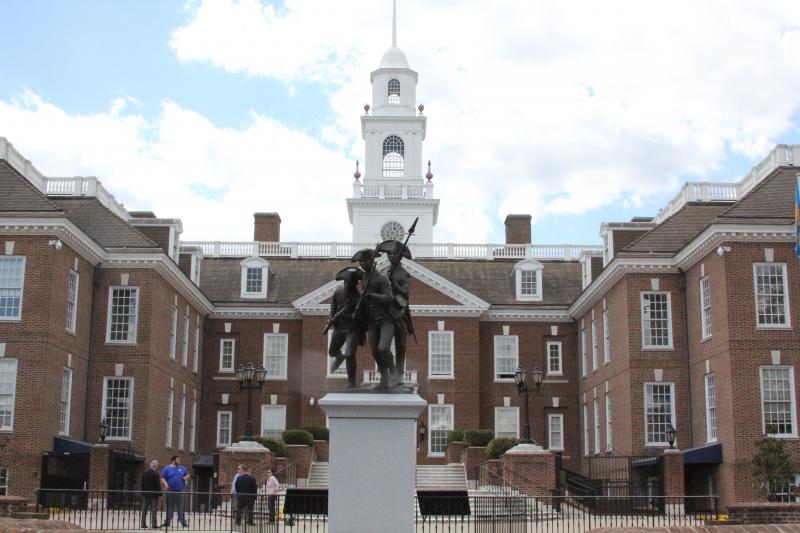The Delaware General Assembly will return to work Thursday, Nov. 13, for an extraordinary session to address a projected $400 million budget shortfall over the next three years.
Gov. Matt Meyer called for the session Oct. 29 while declaring a state of emergency to pay for supplemental nutrition food assistance funds for about 120,000 residents.
“We’re staring down a $400 million shortfall because Washington keeps handing out tax breaks to the wealthy while working people get left behind," he said.
Meyer said he agrees with decoupling Delaware’s tax code from federal law, which Delaware currently mirrors. The House Resolution passed by Congress this summer—President Trump’s One Big Beautiful Bill—includes massive corporate giveaways and deductions that apply retroactively to past years and will affect Delaware’s tax code if not decoupled, he said.
During a recent press conference, Meyer pointed to bonus depreciation, a tax incentive given to corporations under the OBBB. It allows companies to write off depreciation immediately instead of spreading it over five years, a process that many small, startup companies reportedly say is beneficial to them since they have little cash flow.
A statement released by Republicans said the General Assembly is expected to consider proposals that will decouple aspects of Delaware's tax code from some of the changes in the omnibus OBBB Act.
However, while criticizing the president and Congress, Republicans said the governor did not detail the budgetary impacts of spending decisions made by his administration, the previous administration, or those of the House and Senate Democrats who control the state budget-writing process.
Republicans said state spending has continued to increase in recent years. In Fiscal Year 2021, as the pandemic receded, the state spent nearly $4.52 billion, a figure nearly identical to that of the previous year. The following year, spending rose 11.9%. In FY 2023, it jumped 15.9%. The year after that showed a 6.3% hike. Last fiscal year brought another 11.1% increase.
“Comparing FY 2021 to FY 2025, spending increased by $2.4063 billion, or more than 53.2%, creating a larger burden of ongoing expenses that budget writers need to factor in at the start of each budget cycle,” Republicans said.
The General Assembly will return to Dover at 12 p.m., Thursday, Nov. 13.





















































